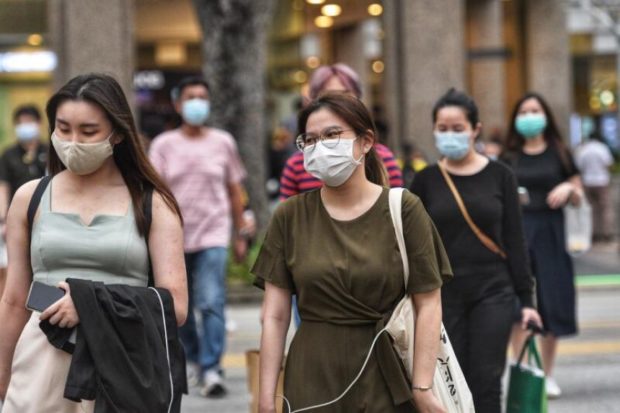COVID-19 pandemic could last four or five years—Singapore official

Singaporeans have to be prepared to live in an acutely changed world. The Straits Times/Asia News Network/DESMOND WEE
SINGAPORE — It could be four or five years before the world sees the end of the Covid-19 pandemic and the start of a post-pandemic normal, said Singapore Education Minister Lawrence Wong.
In setting out this time frame, he noted that the world is likely to encounter many more bumps along the way in handling the crisis.
While the availability of Covid-19 vaccines will progressively restart global travel, getting the world vaccinated will not be quick or easy.
That means that for the rest of this year – and perhaps a good part of next year – Singaporeans have to be prepared to live in an acutely changed world, Mr Wong said in a speech at the Institute of Policy Studies’ Singapore Perspectives Conference on Monday (Jan 25).
“The rules around wearing of masks, upholding of safe distancing measures, and avoiding crowded places – these will continue to be part of everyday life,” he added.
On possible bumps ahead, the minister cited how initial research suggests that current vaccines may not be so effective against the South African mutant strain of the virus.
In a positive scenario, the world ends up developing a vaccine that works against all strains of the coronavirus. Alternatively, vaccination ends up looking like a flu jab, where a new formulation is created on a regular basis.
In the worst case, the world remains always a step behind an evolving virus, he said. “And the bottom line is that we live in a shared world, and no one is safe until everyone is safe.”
No one can tell what the post-coronavirus world will look like, although some positive changes may arise, Mr Wong said.
He gave the example of how spittoons and public spitting were seen as unsanitary after the 1918 influenza pandemic.
Similarly, in Singapore, the pandemic has prompted greater awareness of hygiene habits and social responsibility. Even so, some old habits – such as handshaking – may die hard, he said.
“Each time there is a pandemic, there is a call to say: ‘Let’s have different forms of greeting, in order to reduce the risk of transmission,'” he added, noting that this happened when Singapore faced the severe acute respiratory syndrome (Sars) crisis in 2003.
“But somehow, humans being what we are, we have always gravitated back towards some form of human contact.”
In a crisis like this, the natural tendency is to extrapolate the worst from one’s immediate circumstances, Mr Wong said. For instance, some have predicted that digitalization will precipitate a move towards decentralized living arrangements, rendering cities obsolete.
But history contains multiple examples of cities that bounced back after pandemics, he noted.
For example, 14th-century Florence flourished after the bubonic plague and launched the Renaissance movement. American cities such as Chicago and New York also saw a boom in the 1920s, after the 1918 pandemic ravaged the country.
“And the reason this happens is that cities are not just buildings and monuments,” Mr Wong said. “They are fundamentally about the people who dwell in them, and humans are, by nature, social animals.”
Humans are also adaptable, and therefore have the ability to shape their future, he added. “Let’s think of the crisis as setting the stage for a software update – a reboot of sorts after the tremendous damage inflicted by the virus.”
For more news about the novel coronavirus click here.
What you need to know about Coronavirus.
For more information on COVID-19, call the DOH Hotline: (02) 86517800 local 1149/1150.
The Inquirer Foundation supports our healthcare frontliners and is still accepting cash donations to be deposited at Banco de Oro (BDO) current account #007960018860 or donate through PayMaya using this link.